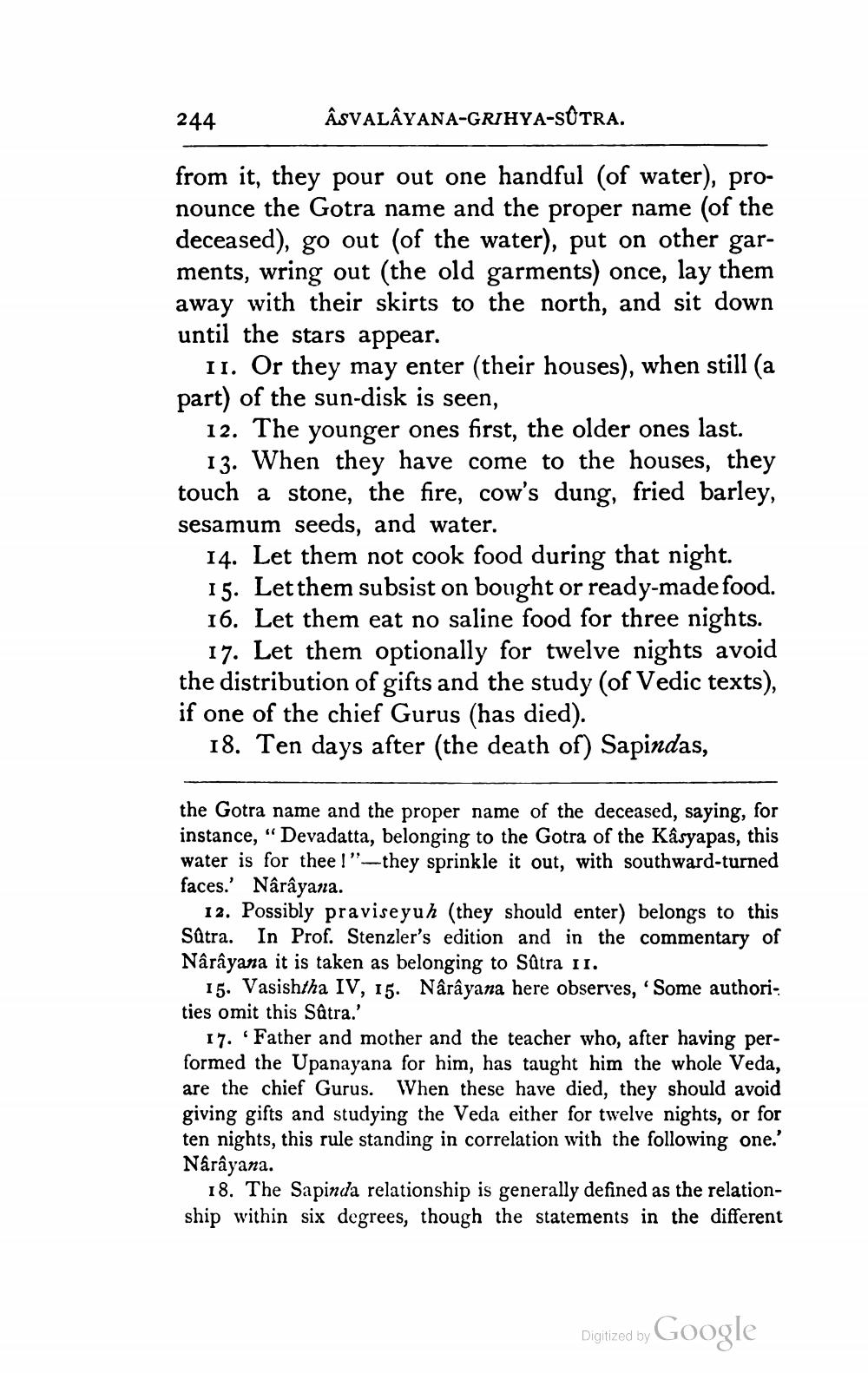________________
244
ÂSVALAYANA-GRIHYA-SOTRA.
from it, they pour out one handful (of water), pronounce the Gotra name and the proper name (of the deceased), go out (of the water), put on other garments, wring out (the old garments) once, lay them away with their skirts to the north, and sit down until the stars appear.
11. Or they may enter their houses), when still (a part) of the sun-disk is seen,
12. The younger ones first, the older ones last.
13. When they have come to the houses, they touch a stone, the fire, cow's dung, fried barley, sesamum seeds, and water.
14. Let them not cook food during that night. 15. Let them subsist on bought or ready-made food. 16. Let them eat no saline food for three nights.
17. Let them optionally for twelve nights avoid the distribution of gifts and the study (of Vedic texts), if one of the chief Gurus (has died).
18. Ten days after (the death of) Sapindas,
the Gotra name and the proper name of the deceased, saying, for instance, "Devadatta, belonging to the Gotra of the Kåsyapas, this water is for thee!"-they sprinkle it out, with southward-turned faces.' Nârâyana.
12. Possibly praviseyuh (they should enter) belongs to this Sætra. In Prof. Stenzler's edition and in the commentary of Narayana it is taken as belonging to Sätra 11.
15. Vasishtha IV, 15. Narayana here observes, Some authori. ties omit this Satra.'
17. Father and mother and the teacher who, after having performed the Upanayana for him, has taught him the whole Veda, are the chief Gurus. When these have died, they should avoid giving gifts and studying the Veda either for twelve nights, or for ten nights, this rule standing in correlation with the following one.' Narayana.
18. The Sapinda relationship is generally defined as the relationship within six degrees, though the statements in the different
Digitized by Google




